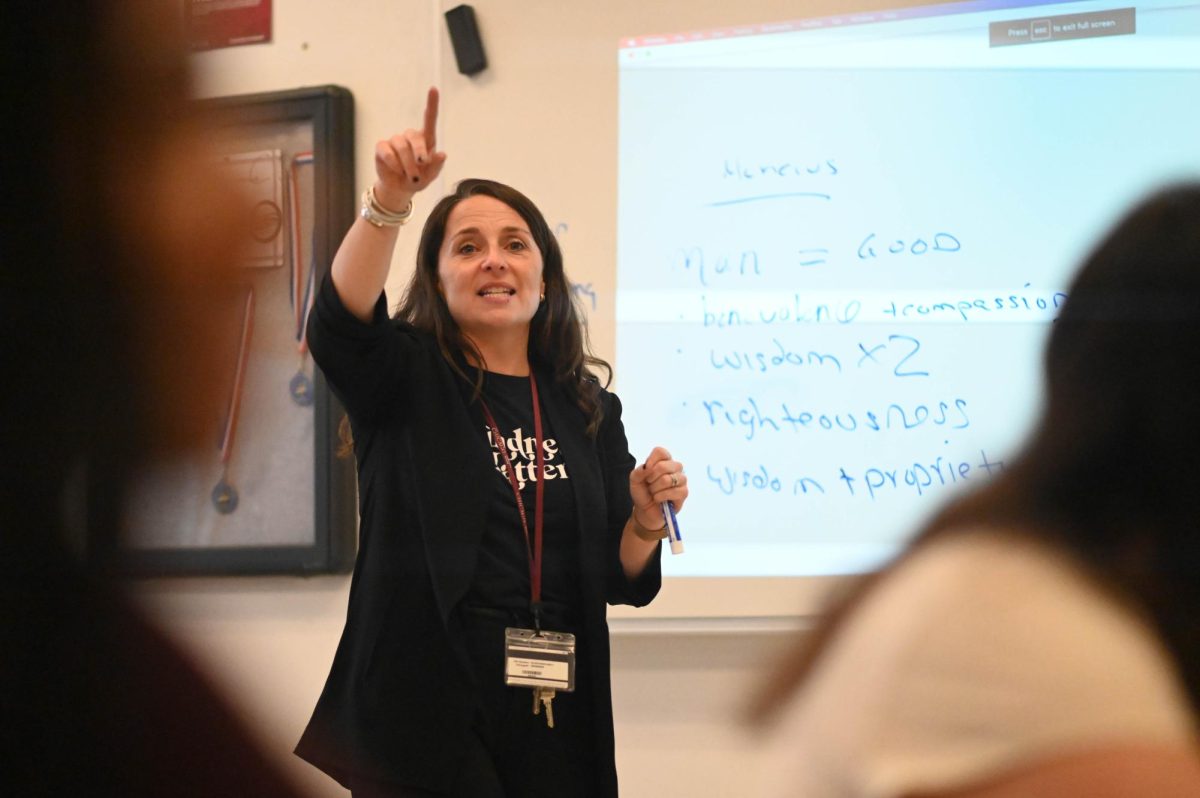In March, Lab’s annual health and wellness survey results showed many students experience feelings of isolation. In the data collected, 30.1% of students reported feeling a low desire to attend school, 5 percentage points higher than the national average of 25%.
Now, in response to the release of the results, U-High teachers have started altering their class environments to promote feelings of belonging and trust.
On Oct. 25, the learning and counseling faculty hosted Balance and Belonging, an event to examine the data from the health and wellness survey and explore ways parents can support students’ academic-life balance. While the event was not well attended, the data has been a widespread topic of discussion among both parents and faculty.
Tracy Graham-Santoro, a U-High counselor who led the event and is a part of the Wellness Council, said that these feelings of isolation come from over-commitment, over-work and feeling unable to confide in anyone. She explained that counselors are helping students who feel this isolation.
“In terms of what we can do, student workload is a constant conversation we need to have,” Ms. Graham-Santoro said. “As an institution it’s important to be self-reflective about why we’re giving assignments, the purpose of those assignments and how long they take.”
History teacher Holly Johnston said that this specific subset of data on the survey stood out to her. She explained that when seeing these students’ feelings reflected in the statistics, she made sure her classes were structured in a way to ensure students feel supported.
“The day-to-day practices that allow kids to feel heard and seen is giving them structure so they can balance everything else going on in their lives,” Ms. Johnston said.
Ms. Johnston explained the many demands U-High students face day-to-day with school and extracurricular activities. She said that oftentimes students schedules’ are already set, so anything unplanned can set it off balance.
English department chair Mark Krewatch shared Ms. Johnston’s opinion on the importance of day-to-day structure. He also emphasized the importance of a strong and trusting relationship between students and teachers, so students feel like they can reach out when they struggle.
“My hope is that everyone knows when it’s legit you can talk to me,” Mr. Krewatch said. “It’s not always easy to build that trust though.”
With the data of the survey released relatively recently, many teachers are working to make sure each and every student feels seen and heard. This has been done through open gradebooks, designated work periods, weekly and month assignment sheets, as well as conversation and flexibility.
“We want to make sure that every student feels like they are connected to at least one adult in the building,” Ms. Graham-Santoro said. “Just one connection can be enough to be a protective factor for students.”





















































